I S S U E 2
EDITORIAL
Naush Sabah
Soundtrack: As-Salat Al-Mashishiyya, Abdas-Salaam ibn Mashish
Were it not for the power of convention in which, by a sort of mutual cancellation of errors, the more practical and normal conceptions are enshrined, the imagination would carry men wholly away . . .
Interpretations of Poetry and Religion, George Santayana
I have been thinking about A. S. Byatt’s essay on storytelling: ‘Narration is as much a part of human nature as breath and the circulation of the blood’, she wrote in 1999. At the close of this decade, I find myself in a narrative crisis and wondering how that might alter my nature. When some foundational narrative in our lives suddenly collapses, the heart pumps harder, breath becomes shallower and faster and we find ourselves no longer able to suspend disbelief. We’re forced instead to defer to our senses and perceptions, and to how our rational faculties conceptualise them. The imagination is left sullenly aside until it can reconvene with reason and construct a new narrative.
Shahrazad’s stories kept her alive and, as Byatt argues, that is more than the central conceit of a frame story: it is a fundamental truth about how we function. We build our lives, our communities, our civilizations upon the narratives we weave and choose to believe together, and often we tear them down by pulling at those narrative threads. We retell the same stories over and again to give sense to our seasons, or to console ourselves when we’re cornered. Like the sacred—impossible—story of a virgin single mother who withdraws to a remote place to give birth utterly alone, clinging to a date palm in the throes of labour, wishing she were dead, until a stream springs up beneath her and ripe dates fall from above, and her new-born boy speaks to defend her honour.
I wonder how distorted this story seems to some of our readers, as it breaks the water’s surface and is refracted; baptised into a newer faith. Powerful stories transform according to need as they pass through the ages and through differing traditions and interpretive lenses: a man can be God’s own son, a prophet, a saviour, or a reason for the heads of heretics to be lopped off. He can move armies or move men to tears. In this issue’s opening poem, the very same people who ‘built homes in the belfry’ eventually ‘christened it in flames’. When the narrative breaks and congregations disappear leaving ‘pages dotted with mould’, somehow the stories still find their way back to us with the endless ‘promise of razed ground’.
Impossible stories can be the most enchanting of all, since—in the words of Colin Falck—the ‘mythic mode of consciousness is a vision of reality . . . a form of integrated perceptual awareness which unites “fact” and “explanation”’. It seems counterintuitive at its surface, that the desire for truth compels us to invest so completely in fictions, and often in fantastical fictions, which in turn create our reality; from the way a single individual loves and lives, to how theology might shape the laws of a whole nation, or how a culture might shape the parameters of acceptable behaviour within it. But somehow, mythological cosmic narratives accentuate deeper human truths and needs. We find spiritual transcendence in the fictive truths that myth alerts our consciousness to. These fictive truths at the core of religious traditions are what keep them relevant, and this human need is what keeps them alive in a post-nihilistic era. God, at least, has an afterlife. The Gardener remains in ‘the lovely, empty garden’.
The poems in this issue of the journal are so firmly earthed that they are ‘stuck in rutted clay’. This is a good place to be at a time when the Poet Laureate rightly says, ‘nature has very much come back into the centre of what poetry can, and should, be dealing with’. And yet it deals also in the cosmos ‘beyond it . . . and infinite black’, it engages still with the ‘wormholes and paradox’ of being alive in the archaeological sites that are the cities and the world we live in. It sweeps in scale, from the ‘bounding heart’ of a delicate bird held in the hand to ‘downed fences [and] hung parliaments’. Amidst loss and death and decay, there is nonetheless wonder and countless reasons to say ‘Hallelujah’.
‘Render unto Caesar the things that are Caesar’s and render unto God the things that are God’s’. Pithy prophetic sayings sit somewhere close to the realm of poetry in that they strike the mind like a match, with a similar sense of unifying completeness that a good poem can, whilst simultaneously sparking new lines of thought, new layers of meaning. That line, like any, can be turned through interpretation and perhaps none are better at exegesis to their own ends than the self-proclaimed men of God. For them, all things are God’s, even Caesar, and so Caesar must be rendered to God (and God’s mind can only be known through them). In that way, Christo-Islamic religious traditions have tended to claim dominion over all things within their reach.
The purview of poetry is just as all-encompassing. But what seems a weapon in the hands of religion, is a far gentler instrument in the hands of poetry. Rendering unto poetry the things that are poetry’s opens it—our favoured imaginative mode of explaining and knowing reality—to an endless expanse of material for renewed mythologies and renewed narratives. ‘The only religious scriptures we shall need . . . will be the poetry or literature to which our culture gives us access’ asserts Falck, echoing Matthew Arnold. That idea holds no less hope and promise than a miracle baby born to a virgin mother.
